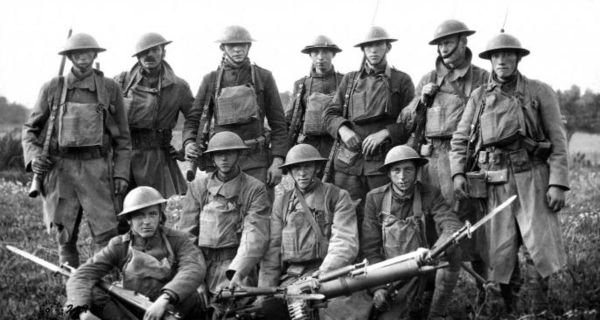
By Jana Everett
Writing during the First World War, the poet Wilfred Owen asked,
What passing-bells for these who die as cattle?
— Only the monstrous anger of the guns.
Only the stuttering rifles' rapid rattle
Can patter out their hasty orisons.
Saturday evening I attended the Colorado Symphony, which performed Benjamin Britten’s “War Requiem.” Britten composed this oratorio for the dedication of the rebuilt Coventry Cathedral in 1962. This work combines the Latin text of a requiem mass with nine poems by Owen, who was killed during the last week of the First World War, when he was 25. Three soloists, the symphony chorus, and the children’s chorale joined the orchestra conducted by Brett Mitchell for this performance.
The symphony’s program notes quoted Britten’ s biographer, Michael Kennedy:
"[A]s a life-long pacifist, he was deeply stirred by the thought of a new cathedral being erected near the ruins of the medieval cathedral destroyed by bombs in 1940. He saw the chance to make a public declaration of his hatred of war and to emphasize the importance of reconciliation."
I was moved by this magnificent production, which juxtaposed the institutional sanctification of war through the Mass for the Dead with the personal experience of men, shattered by war, embodied in Owen’s poetry. The oratorio ends with Owen’s words, “I am the enemy you killed, my friend,” and a closing prayer, asking, “Grant them eternal rest, Lord, and let perpetual light shine upon them.”
As I experienced “The War Requiem,” I reflected on the toxic effects of our president’s rhetoric today. In the United States, there may not be armies fighting each other, but our president has proclaimed that the press is the enemy of the people, and he endorses racism and violence against women, immigrants, and the LGBTQ community. This institutional sanctification of hatred and violence appears to have weaponized the resentments of mentally disturbed individuals, who have gone on to commit acts of domestic terrorism. And it has politicized difference, turning those unlike ourselves into the “other.”
Britten draws on Owens’ poem, “The Parable of the Old Man and the Young,” to indict Europe’s leaders for the destruction they unleashed. In this poem, Abraham doesn’t listen to the angel, who tells him to sacrifice a ram instead of his son:
But the old man would not so, but slew his son,
And half the seed of Europe, one by one.
I worry that a similar dynamic is operating today.
Editor's Note: Lit Counts is an essay series in which readers and writers from our community express why they believe in supporting and elevating literary arts—the mission of Lighthouse Writers Workshop. The series will countdown toward Colorado Gives Day on December 4, the annual statewide fund drive for nonprofits. For 2018, Lighthouse has set a goal of $90,000, to support the continued growth of our literary programs. If you believe in the mission of Lighthouse, consider scheduling your contribution today.
Jana Everett taught at CU Denver in political science for 43 years and is now taking classes at Lighthouse to learn how to write differently.

